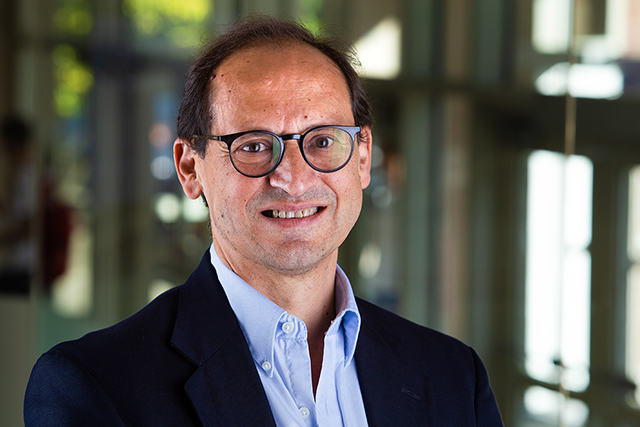
The Ohio State University has joined a coalition of colleges and universities offering their help in protecting scholars displaced by turmoil in their home countries.
Jeffrey Cohen, professor of anthropology, and Hollie Nyseth Nzitatira, associate professor of sociology, serve as co-chairs of the Committee for At-Risk Scholars and Artists (CASA), which was formed at Ohio State in January 2023. CASA was formed in association with Scholars At Risk, an organization that advises threatened scholars and their host universities, campaigns for scholars who are imprisoned or silenced in their home countries and develops strategies for promoting academic freedom.
The Scholars At Risk (SAR) network is comprised of around 170 universities and associations in the United States, alone.
Cohen says that CASA is the brainchild of Scott Levi, professor and chair of the Department of History, and Fernando Unzueta, associate vice provost of the Office of International Affairs and professor of literatures and cultures of Latin America. “They had been talking [about this] for years - and there were some of us, on faculty, who are also engaged in this conversation about ways that we could address some of these issues of academic freedom and access.”
Last year, Cohen, Levi, Unzueta and several other faculty members began brainstorming how to create an organization that supported not just academic engagement, but also artistic engagement for thinkers abroad who were at-risk. “Around the world, there are scholars and artists who are at-risk for lots of different reasons. One of the things that we focus on is the ability to go to a university and, whether you're left or right of your administration, that you have the safety you need to find your voice. It's the same for artists and the idea of artistic expression, there are places where it's not necessarily an easy sort of path to follow.”
Cohen says that the faculty members who expressed interest in taking part in CASA’s efforts can point to instances where their work, at home or abroad, has brought them into contact with academics or artists whose efforts have been hampered, usually due to political pressure. “For every one of us on the committee, we know somebody or we've been engaged with a group that that is in a position of risk or insecurity. And this isn't just one country or place, but in several different settings where colleagues just are not allowed the opportunity to do the work that they wanted to do - that they could do, that they should do - because they risk potentially saying something that somebody wouldn't like. And that doesn’t always take the form of bodily threats, either.”
Once CASA had established its goals and aims, joining the Scholars At Risk organization was a natural fit. In addition to helping to connect at-risk scholars with host universities, SAR monitors at-risk regions for instances of academic rights abuses, provides legal representation for scholars imprisoned for their work and hosts seminars about the ways in which academic institutions can get involved, both as members and otherwise. CASA is currently working to bring a Scholars At Risk seminar to local members to encourage dialogue about SAR’s efforts.
The program is still in its infancy at Ohio State and, as of yet, the university is not hosting any scholars or artists. But Cohen said that there are many ways to leverage Ohio State’s resources to bring awareness to the cause. “Our work may not always be focused on trying to bring a scholar or artist to OSU but offering the strength of OSU. For me, that's meant writing with people from many different countries who are trying to break into bigger academic communities. For instance, I've worked with migration scholars who are publishing their findings in places that will give them an opportunity to talk with others.”
One of the conversations Cohen and other CASA members have been having is how to build out CASA as a sustainable platform that people can come to regularly. “Outreach is really important: talking to the community and asking for community support; working with nongovernmental organizations here in Columbus; working with migrant and refugee communities; working with arts programs and public policy programs.”
Cohen highlighted that CASA’s partners are self-identified and this is not just an effort of faculty on the main campus, nor is it wholly an effort of Ohio State, alone. “We are working to tie into the community, because we have incredible resources here in Columbus from lots of different groups, whether they're refugee groups or new immigrant groups. And we are engaged with the branch campuses, as well – for example, one of our members is from the Marion campus.”
One of CASA’s aims is to tear down divisive notions and encourage academics, artists and community members to come together in service of a universally-important cause, whether on a global scale or on the local level. “We’re all Ohio State and we're all working for the same goals. For me, it's really exciting to be able to do that together,” Cohen said.
This story was written by Z. Daniel Barnett, senior content specialist, College of Arts and Sciences.